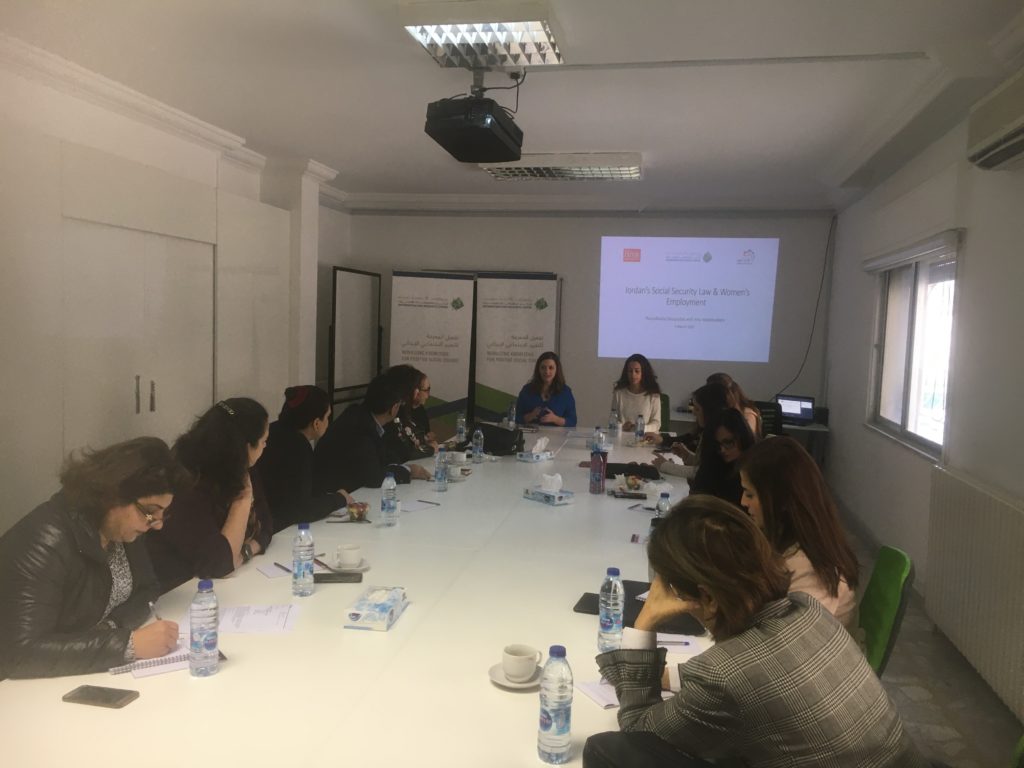In partnership with Hivos, the Information and Research Center King Hussein Foundation (IRCKHF) organized a roundtable for key stakeholders in preparation for its upcoming qualitative study on the impact social security amendments concerning maternity benefits have on women’s employment in the private sector.
Goal of the meeting
The main goal of the meeting was to have the stakeholders’ feedback on the research question and sub-questions, in addition to hearing their perspectives related to the research and what to focus on.
Questions raised
Major issues were raised by the attendees such as the importance of knowing how many women quit their jobs prior to benefiting from maternity pension, or those who kept working without benefiting from the Maternity Fund. Also, stakeholders pointed out that many women withdrew from the job market on account of economic violence, and not because of pregnancy or giving birth. Furthermore, given the clear impact husbands have on their wives’ employment choices, holding focus groups with the former could be highly beneficial for the study. Finally, stakeholders underscored that there might be an increase in the employment of females in numbers. However, this population does not necessarily include the married ones, or those with children, but single women who do not benefit from the Maternity Fund. Therefore, employed women should be divided according to their marital status and the number of children they have to better reflect reality. Consequently, hiring and retaining practices of organizations should be investigated to unveil whether single women are more prone to get hired than married ones by companies that are trying to avoid paying for the Maternity Fund.
Importance of consultation meetings
Consultation meetings are important to Hivos for a number of reasons. First of all, they allow to build the ownership of the local communities in identifying their priorities. Second, they promote coordination in order to avoid duplication by increasing the synergetic between stakeholders active in the same field. Third, they encourage a participatory approach; this implies that the more parties are involved the more feedback there is.


